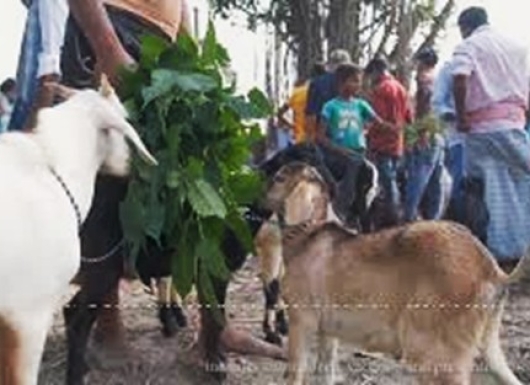Submitter: Gates Foundation
The Pashu Sakhi model in Bihar is a community-based livestock extension approach that builds the capacity of rural women to serve as trained animal health workers for small ruminant holders, especially goat rearers.. The model addresses the critical shortage of last-mile veterinary services and knowledge among poor, smallholder farmers — particularly women — who rely on goats for livelihood and nutrition.

These Pashu Sakhis are equipped with skills in vaccination, deworming, basic animal health care, and improved goat management practices.
The Pashu Sakhi model works in rural Bihar, India, where smallholder women rear goats but have poor access to veterinary services. It is well-suited for rural areas lacking organized small ruminant systems, where women lead livestock activities and last-mile vet services are weak. The model has strong potential for replication in many African countries like Ethiopia, Kenya, and Nigeria with similar smallholder, goat-rearing contexts.
Independent evaluations have shown that the Pashu Sakhi program has reduced goat mortality, increased women’s incomes through service fees and improved livestock productivity and strengthened women’s participation and voice in household decision making and empowerment
The Pashu Sakhi model can be adopted in areas where women are engaged in small ruminant rearing and veterinary services are limited. It is easy to scale in places with existing women’s groups, as it needs low capital investment and relies on local human resources. Successful adoption also depends on social contexts where women’s mobility is not heavily restricted, allowing them to deliver services effectively in their communities.